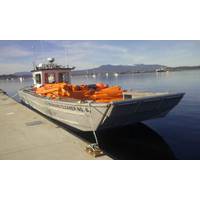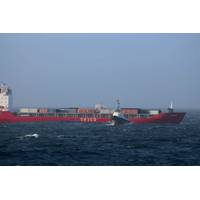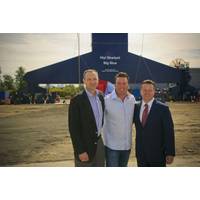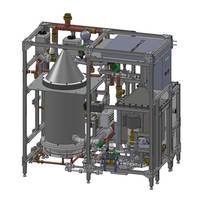British Columbia: Oil Spill Response shows Unprepared for More Tankers
British Columbian officials on Friday criticized the Canadian government's response to an oil spill in the waters around Vancouver, calling into question plans for new crude oil export pipelines in the Pacific Coast province. Nearly 3,000 liters of oil spilled after an anchored bulk carrier began leaking bunker fuel in English Bay, just west of Vancouver's downtown core, on Wednesday. Officials in the province said the coast guard responded but was slow to contain the slick, which spread towards beaches.
Spill Response UNderway in English Bay

Just after 5pm April 8, Port Metro Vancouver's Operations Centre received multiple reports of an oily sheen on the water in English Bay. Harbour patrol crew then responded to investigate and confirmed a sheen on the water. This information was reported to the Canadian Coast Guard who are now working with West Coast Marine Response Corporation to manage the situation. The area has been surrounded by a specialized boom designed to keep the spill contained and allow for recovery of spilled substance.
Oil Spill Response: USCG, CCG & Foss Team

Canadian, U.S. Coast Guards and Foss Maritime coordinate a textbook response operation. Robust response trumps the need for later salvage. In the early hours of Friday, October 17, the crew of the Russian cargo ship Simushir attempted to repair a broken oil heater. On its way to Pevek in the Russian Far East, the vessel suddenly lost propulsion and began drifting toward the nearest land, which in this case was the archipeligo Haida Gwaii.
Canada’s Largest Gantry Crane: Seaspan Unveils Name

After several months of anticipation and preparation, and the careful consideration of hundreds of student submissions, Seaspan officially revealed the name of its newly assembled, 300-tonne gantry crane at a boisterous unveiling ceremony at Vancouver Shipyards (VSY) today. Announcing the crane’s new name - Hiyí Skwáyel, the Squamish language translation of “Big Blue” (pronounced hee-yay sk-why-el) – was the final step in an extensive…
Oily Wastewater Transformed with WETT-O

Terragon Environmental Technologies has been developing the Wastewater Electrochemical Treatment Technology for oily water, or simply WETT-O, for the past six years. WETT-O uses an electrochemical process to transform oily wastewater into reusable or dischargeable water depending on the application. WETT-O uses electrochemistry and does not require filters, membranes, chemicals or biological treatment commonly found in alternative approaches.
